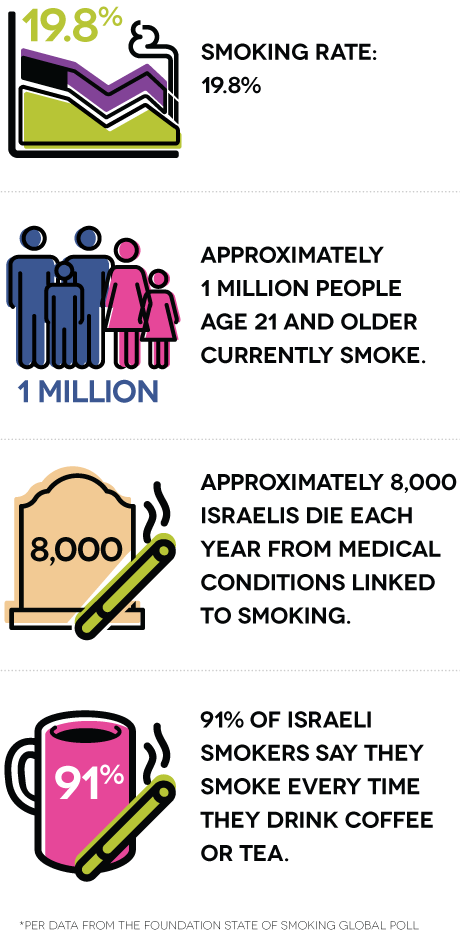This page was last edited on: November 21, 2019
Yes
Tobacco products cannot be advertised in radio or television broadcasts, newspapers, public inland transport, or any public performance, per the Restriction on Advertising and Marketing of Tobacco Products Law, amended in 2001. The law also indicates there shall be no advertising that praises or supports smoking. In 2004, Israel prohibited the sale of tobacco products to minors. Warning language is required for all tobacco products, including smokeless products, and smoking is banned in public places as specified under Israel’s Prevention of Smoking and Exposure to Smoking in Public Places Law. While smokeless tobacco products such as snus and chewing tobacco are regulated as tobacco products, e-cigarettes, and e-liquid are not within the scope of “tobacco products” and are not specifically regulated in Israel.
Media coverage focuses on the high smoking rates in the military, tobacco farming territory disputes, and contradicting anti-smoking efforts by the government.
Adoption of risk-reduced products has been steady, given that the Israeli government has not placed strong regulations on their advertising or sale.

“The easiest way to end smoking in Israel would be to first give smokers knowledge about the difference in risk between different products, and second, not to limit those products with taxes and disproportionate advertising bans.”
– Zvi Herzog, Anti-smoking activist
© 2023 Foundation for a Smoke-Free World. All rights reserved.